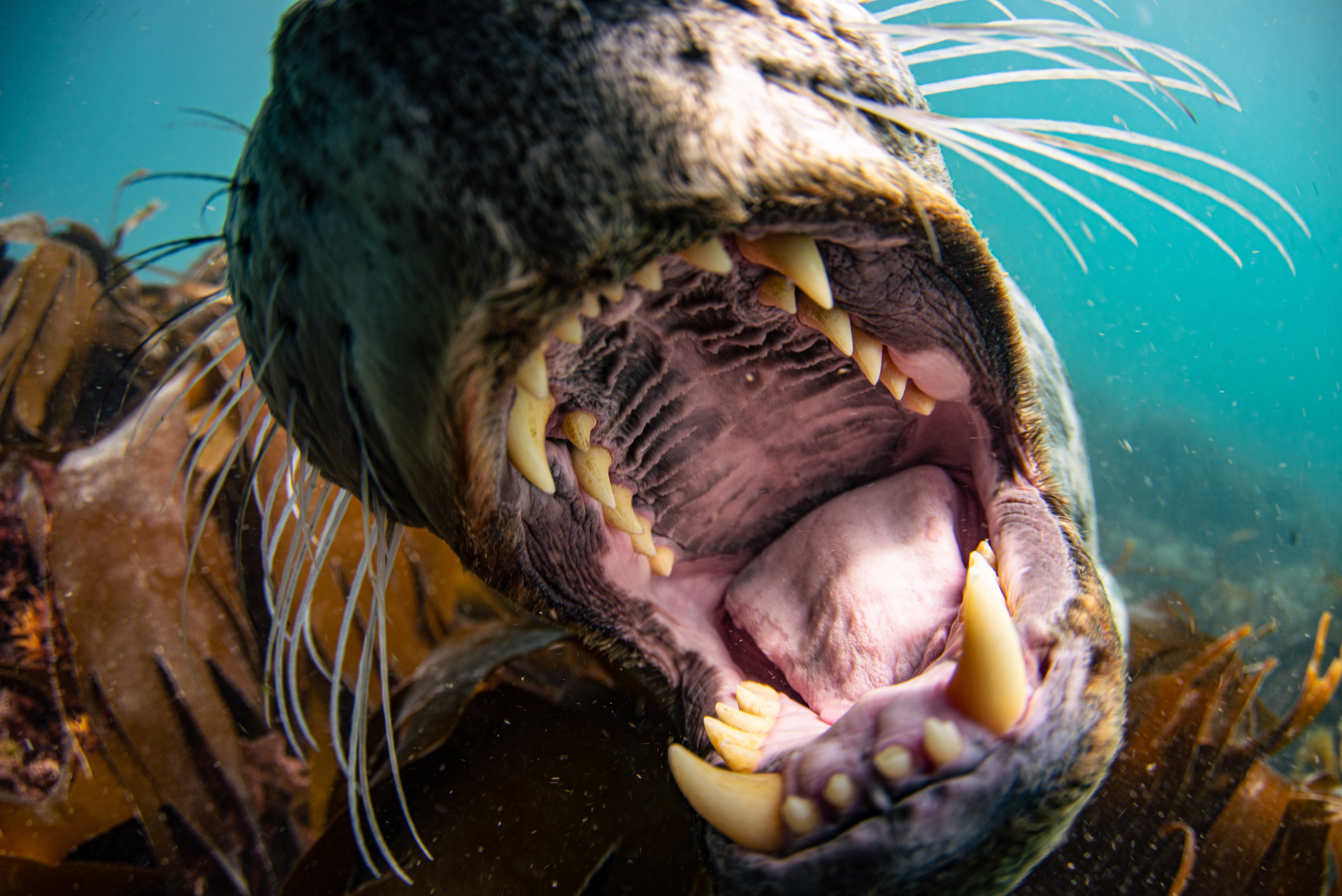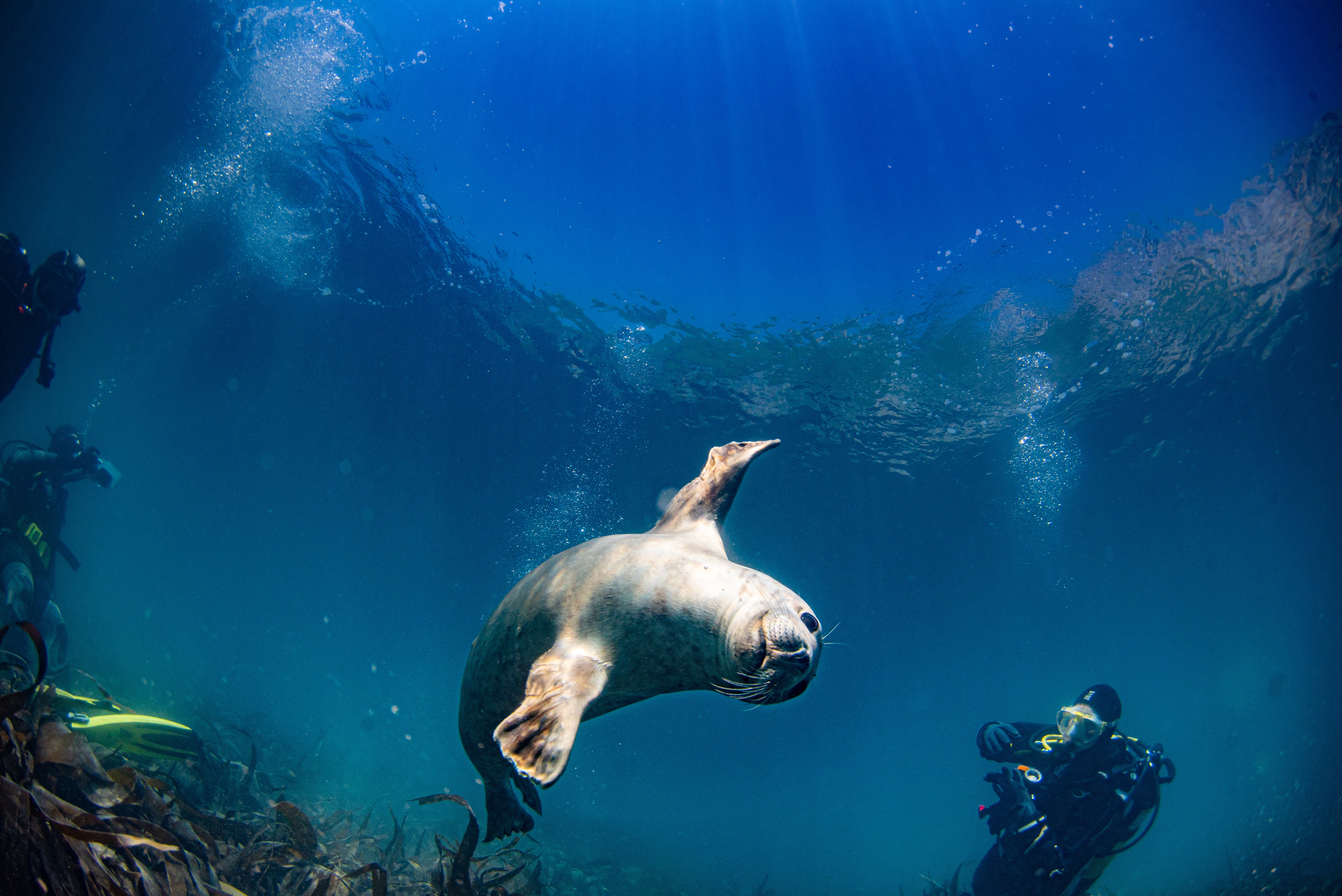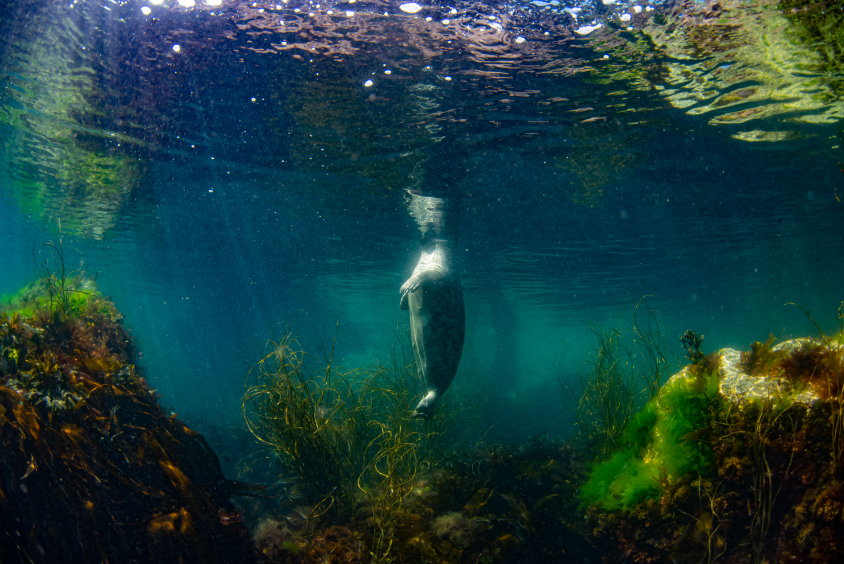Scuba diving with the seals of Lundy Island
Inquisitive and playful grey seals are one of many reasons to get exploring these waters off the coast of north Devon, writes Jo Caird

Your support helps us to tell the story
From reproductive rights to climate change to Big Tech, The Independent is on the ground when the story is developing. Whether it's investigating the financials of Elon Musk's pro-Trump PAC or producing our latest documentary, 'The A Word', which shines a light on the American women fighting for reproductive rights, we know how important it is to parse out the facts from the messaging.
At such a critical moment in US history, we need reporters on the ground. Your donation allows us to keep sending journalists to speak to both sides of the story.
The Independent is trusted by Americans across the entire political spectrum. And unlike many other quality news outlets, we choose not to lock Americans out of our reporting and analysis with paywalls. We believe quality journalism should be available to everyone, paid for by those who can afford it.
Your support makes all the difference.The seal twisted and rolled in the water as it made its way towards me. The others had kept their distance but this one just kept getting closer, keen to investigate the strange visitor to its world. Expecting it to dart away at any moment, I stayed stock still, barely daring to breathe in case the bubbles from my scuba gear frightened off my new friend.
Then, oh so slowly, the seal closed the gap between us, touching my forehead with its nose before disappearing into the blue. A friend alongside me in the water said later that she thought it had come in for a sniff. Maybe so – to me, the encounter felt just like a kiss.
I had spotted several seals sunning themselves on the rocks of Gannet’s Bay as soon as our dive boat reached Lundy Island that morning. This granite outcrop off the north Devon coast, an 80-minute boat ride from Ilfracombe, is home to a colony of about 200 Atlantic grey seals. The larger of the UK’s two seal species, weighing in at up to 300kg each, grey seals are naturally inquisitive and playful, making Lundy a real hotspot for diving.
The seals, mostly juveniles from their size and the lighter colour of their fur, plopped into the water as we got into our dive gear, approaching the boat to see what they were dealing with. Once I was in the water myself, however, they were nowhere to be found. Below the surface, the visibility, often pretty variable in UK waters, was excellent – even so, it was all too easy for a seal to stay concealed just beyond my range of vision against the greenish-blue of the bay.
It wasn’t long, however, before I got my first glimpse, a seal that came over my dive buddy’s shoulder so fast it made my pulse jump. It was gone before I could frantically signal to him to turn around.

But it suddenly reappeared, doing a couple of loops of my buddy before coming in for a closer look at the dome protecting his camera. Fascinated by its reflection, perhaps, the seal opened its mouth wide, touching the glass with its teeth while my buddy sat among wide brown fronds of kelp, keeping a tight grip on his property – seals have been known to nick gear from distracted divers.
The next encounter was a calmer one. As we made our way slowly along the curve of the bay, seaweed in a dozen shades of green swaying gently just beneath us on the rocks, a seal came into view up ahead. Its head above the surface, its body in the water, it hung there, absolutely motionless.
We waited. We waited some more. The seal didn’t move a muscle.

Then suddenly, without even a twitch of its fins, it dropped down through the water, landing in a patch of seaweed so thick that it was almost obscured from view. There it lay, apparently asleep, before heading back to the surface for another breath a few minutes later.
I witnessed this behaviour – known as “bottling” after the position the seals take in the water – again and again. Simon Barker of Easy Divers, who has been leading dive trips to Lundy for the past five years, put this apparent laziness – the camera incident is more typical – down to the heat: it was pushing 85F that week. That and the time of year; later in the season seals become more playful as they get used to divers.
In between seal sightings I spotted delicate sunset-cup coral, a minuscule blue-rayed limpet, and a veritable carpet of European spider crabs
Whatever the seals are up to, Simon stresses, it’s crucial that divers not disturb them. This is their environment, not ours – chasing, touching or feeding them is forbidden, in everyone’s best interests.
I could see where the seals’ were coming from when it came to the weather. Getting into my diving dry suit, complete with hood, gloves, insulated undersuit and booties, had me red in the face and dripping with sweat. Fellow divers in wetsuits had it easier topside but felt the cold more in the water.
Dry-suit diving, which requires a short additional training course and proof of certification, is by no means essential for diving in the UK. It’s certainly worth the effort though if you want to take advantage of the full range of British dive destinations, many of which – from Cornwall’s Lizard Peninsula to Scapa Flow in Orkney – are accessible all year.

Lundy’s star attraction is its seals – which have the benefit of being easily accessible to inexperienced divers on shallow, guided trips – but there’s lots more to see across the island’s couple of dozen dive sites.
In between seal sightings, I spotted delicate sunset-cup coral, a minuscule blue-rayed limpet, and a veritable carpet of European spider crabs. Not to mention the wreck of the SS Salado, a cargo steamer that went down in 1897 after striking rocks obscured by fog. The ship is pretty comprehensively broken up today, with just some steel ribs of the hull still visible but seeing it was an evocative experience nonetheless, giving a sense of Lundy’s darker, more dangerous side. The SS Salado is just one of several ships lost in these waters over the centuries.
Back on the dive boat at the end of the day, the sun blazing down from a cloudless sky, not a breath of wind disturbing the silk-like surface of the bay, it was hard to imagine Lundy in any state other than idyllic.

The seals had proved elusive on my final dive – it was only at the very end that I found one, snoozing under a kelp-covered rock, a small scar in the shape of a heart marking its backside. Yet as I changed out of my dive gear and prepared for the journey back to the mainland, a dozen of them popped their heads out of the water.
“See you next time,” they seemed to say. “Indeed you will,” I thought to myself.
Travel essentials
When to go
It’s possible to dive and snorkel with Lundy’s seals from May to September. The sea is warmest at the end of the season.
How to go diving
Easy Divers runs guided and unguided dive trips to Lundy for qualified divers of all experience levels, as well as hiring full dive gear (two dives, including equipment hire, costs £177 per person). Wild Frontier Charters runs Lundy trips for qualified, experienced divers (£95 per person per day).
Where to stay
Double rooms at Epchris Guesthouse (which is run by Easy Divers) start at £80 per night.
Jo Caird’s diving was hosted by Easy Divers and Wild Frontier Charters.

Join our commenting forum
Join thought-provoking conversations, follow other Independent readers and see their replies
Comments